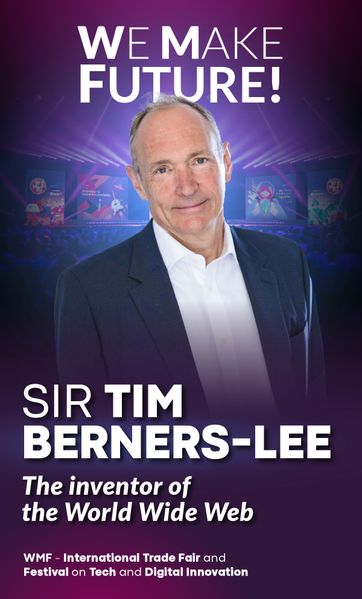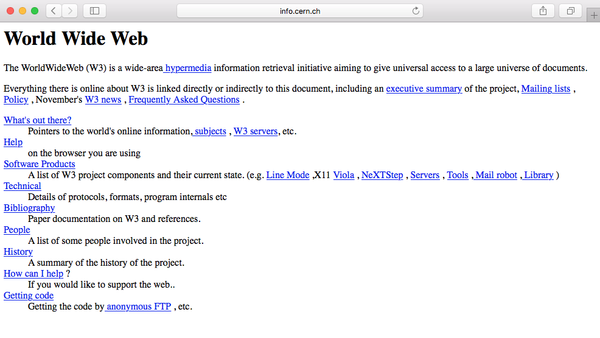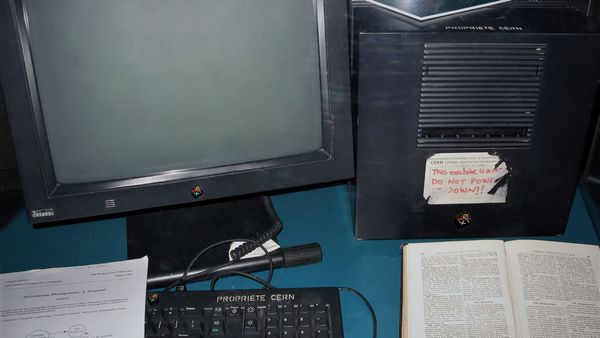Sir Tim Berners-Lee was the guest of honor of the 11th edition of WMF - We Make Future, International Fair and Festival on Tech and Digital Innovation, which took place at the Rimini Exhibition Center from June 15 to 17, 2023, Italy.
Sir Tim Berners-Lee OM, KBE, FRS, FREng, FRSA. Named one of Time Magazine’s ‘100 Most Important People of the 20th Century,’ he is the co-founder and CTO of Inrupt, which uses pioneering Solid technology to put individuals in control of their data and give organizations new opportunities to create value for customers in an open marketplace of innovation.
In 1989 while at CERN, Sir Tim invented the World Wide Web. Sir Tim is the Founder and Director of the World Wide Web Consortium (W3C) which makes technical standards for the Web and the World Wide Web Foundation whose mission is that the World Wide Web serves humanity.
He co-founded and is President of the Open Data Institute in London and is a Professor of Computer Science at Oxford University, and an Emeritus Professor Massachusetts Institute of Technology (MIT). In 2013, Sir Tim, along with Vinton Cerf, Robert Kahn, Louis Pouzin and Marc Andreesen, was awarded the Queen Elizabeth Prize for Engineering for "ground-breaking innovation in engineering that has been of global benefit to humanity."
In April 2017, Sir Tim was awarded the Turing Prize, considered the "Nobel Prize of Computing”. He is a Fellow of the Royal Society and a member of the American Academy of Arts and Science and the National Academy of Science. He has been the recipient of several honorary degrees and awards, most recently the Seoul Peace Prize in 2022 for his work promoting data sovereignty and leading the movement to “decentralize” the web.



